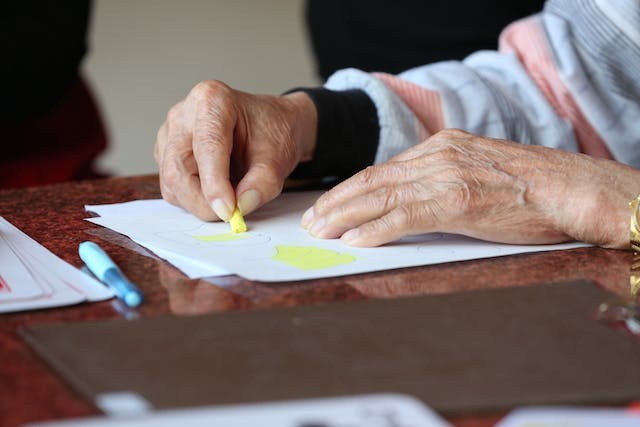
There's no cure for Alzheimer's disease. However, certain medications can help deal with its symptoms.
Alzheimer's Disease Treatment
Alzheimer's disease (AD) causes the brain to shrink and brain cells to die. It is the leading cause of dementia, a mental condition related to a gradual decline in memory, thinking, behavior, and social skills. This health condition could eventually impair one's ability to function daily.
There are two types of medicines to address AD's symptoms.
Acetylcholinesterase (AChE) inhibitors (Cholinesterase Inhibitors)
Acetylcholine is a chemical that helps nerve cells connect in the brain, and these medications raise their levels. These medications function by increasing intercellular communication. They replenish a neurotransmitter that Alzheimer's disease causes the brain to lose. These are frequently the first medications used, and most patients report only slight symptom relief.
Cholinesterase inhibitors may help with behavioral symptoms, including sadness or agitation. The medications are either topically as patches or administered orally. Cholinesterase inhibitors such as galantamine (Razadyne), donepezil (Aricept, Adlarity), and rivastigmine transdermal patch (Exelon) are frequently administered. Other FDA-approved drugs are Galantamine (Razadyne®), Rivastigmine (Exelon®), and Donepezil (Aricept®).
As of right now, only medical professionals like neurologists and psychiatrists are authorized to prescribe them. A general practitioner (GP) may prescribe them on the recommendation of a specialist or by GPs with specific training in their administration.
According to the most recent guidelines, these medications should be continued as the disease reaches its later, more severe stages.
All AChE inhibitors function similarly, albeit some individuals react better to one than the other or experience fewer side effects, which might include diarrhea, nausea, vomiting, sleep disturbance, and appetite loss. Symptoms usually get better after two weeks of treatment.
Memantine (Namenda)
This medication does not suppress AChE. It stops the advancement of moderate-to-severe Alzheimer's disease symptoms by interacting with a different brain cell communication network. It is occasionally used as an inhibitor of cholinesterase.
It is appropriate for patients with severe Alzheimer's disease who are currently taking an AChE inhibitor as well as for those who cannot take or cannot tolerate AChE inhibitors. Headaches, lightheadedness, disorientation, and constipation are side effects, albeit typically transient.
ALSO READ : Are We Living In the Past? New Study Shows Brain Acts Like A Time Machine That Brings Us 15 Seconds Back
Other Alzheimer's Disease Treatment
Medication for the symptoms of Alzheimer's disease is just one aspect of the treatment given to the dementia patient. To help persons with dementia live effectively, other therapies, activities, and support are equally crucial.
Cognitive Stimulation Therapy
As part of cognitive stimulation treatment (CST), patients engage in exercises and group activities to enhance their memory and problem-solving abilities.
Cognitive Rehabilitation
The method includes collaborating with a friend or family member and a qualified professional, like an occupational therapist, to accomplish a personal objective, like learning to use a smartphone or other commonplace chores.
Using the portions of your brain that are functioning to support the parts that are not, cognitive rehabilitation helps you retrain your brain.
Working with Life Stories and Memories
Talking about items and occasions from your past is a key component of memory practice. Typically, props like pictures, cherished items, or music are used. A life narrative project includes gathering memories, mementos, and pictures from your early years. It may be available digitally or as a physical book.
These methods are occasionally mixed. Research indicates that they can enhance well-being and mood.
RELATED ARTICLE: Paralyzed Man Speaks and Asks for Beer Using His Mind Through Microchip Brain Implant
Check out more news and information on Neuroscience in Science Times.
© 2026 ScienceTimes.com All rights reserved. Do not reproduce without permission. The window to the world of Science Times.










